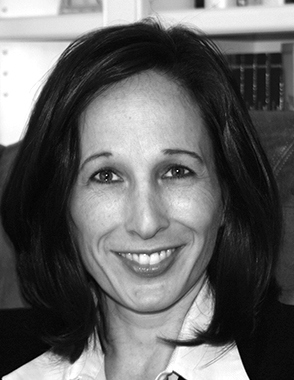Policymakers are from Mars, Tech Company Engineers are from Venus
This week, Herb Lin and I are giving a joint talk about the suit-hoodie divide, and whether relations between Washington and Silicon Valley are getting worse (I think the answer is yes). Part of the problem stems from conflicting interests and serious differences of opinion about policy. But a large part of the problem—and perhaps the hardest and most hidden part—stems from cultural differences. I don't want to overstate here. Culture is squishy. It's hard to see, hard to measure, hard to articulate, hard to change.
Published by The Lawfare Institute
in Cooperation With

This week, Herb Lin and I are giving a joint talk about the suit-hoodie divide, and whether relations between Washington and Silicon Valley are getting worse (I think the answer is yes). Part of the problem stems from conflicting interests and serious differences of opinion about policy. But a large part of the problem—and perhaps the hardest and most hidden part—stems from cultural differences. I don't want to overstate here. Culture is squishy. It's hard to see, hard to measure, hard to articulate, hard to change. And it often varies dramatically even within a single organization (just ask a CIA analyst about the culture in the CIA's clandestine service). But I'm struck by the yawning cultural divide between policymakers in Washington and engineers in Silicon Valley tech companies. The gap is more fundamental than "oh, those crazy kids have pingpong tables and volleyball courts at their headquarters." These cultural differences include radically different world views about the role of government, theories of change, and what makes a personal career meaningful.
I've laid them out in a chart:

Amy Zegart is a senior fellow at the Hoover Institution and the Freeman Spogli Institute for International Studies at Stanford University. She is also a professor of political science by courtesy, past co-director of Stanford’s Center for International Security and Cooperation, and a contributing writer at The Atlantic. She specializes in U.S. intelligence, emerging technologies, and national security. Her forthcoming book, Spies, Lies, and Algorithms: The History and Future of American Intelligence, will be published by Princeton University Press in October 2021. She received an AB in East Asian studies magna cum laude from Harvard University and a PhD in political science from Stanford University.
More Articles
-

Algorithmic Optimism, Democratic Reality
A review of Bruce Schneier and Nathan E. Sanders, “Rewiring Democracy: How AI Will Transform Our Politics, Government, and Citizenship” (The MIT Press, 2025). -

Dumb and Dumber: Russia's State-Backed 'Hacktivists'
The latest edition of the Seriously Risky Business cybersecurity newsletter, now on Lawfare. -

When AI Models Can Continually Learn, Will Our Regulations Be Able to Keep Up?
Regulation has already been hard enough for static AI models.


.jpg?sfvrsn=b3d4eb92_7)

-(1).png?sfvrsn=dd820f87_5)
